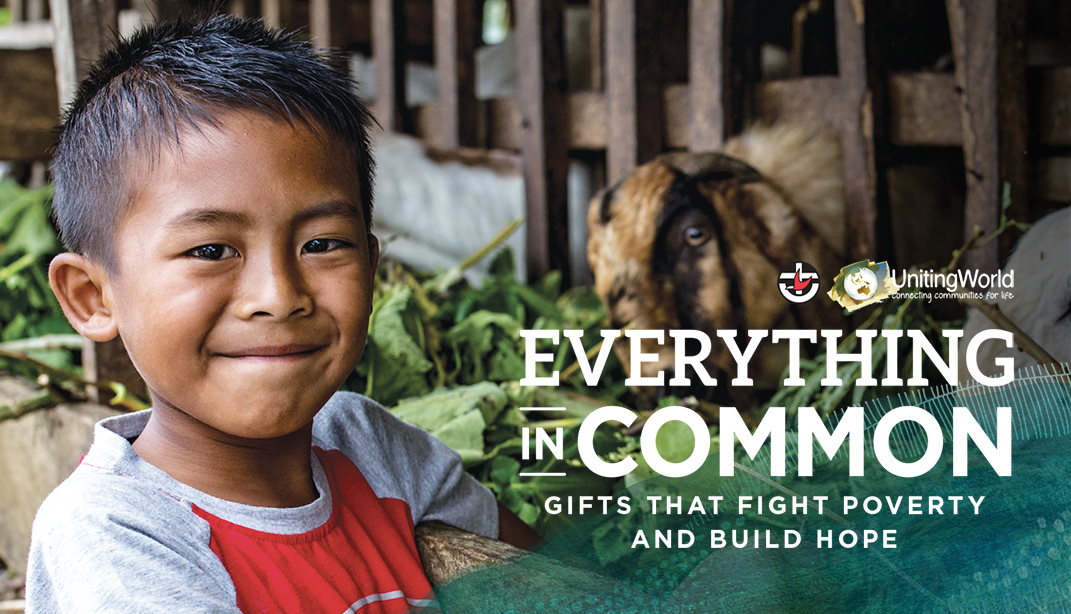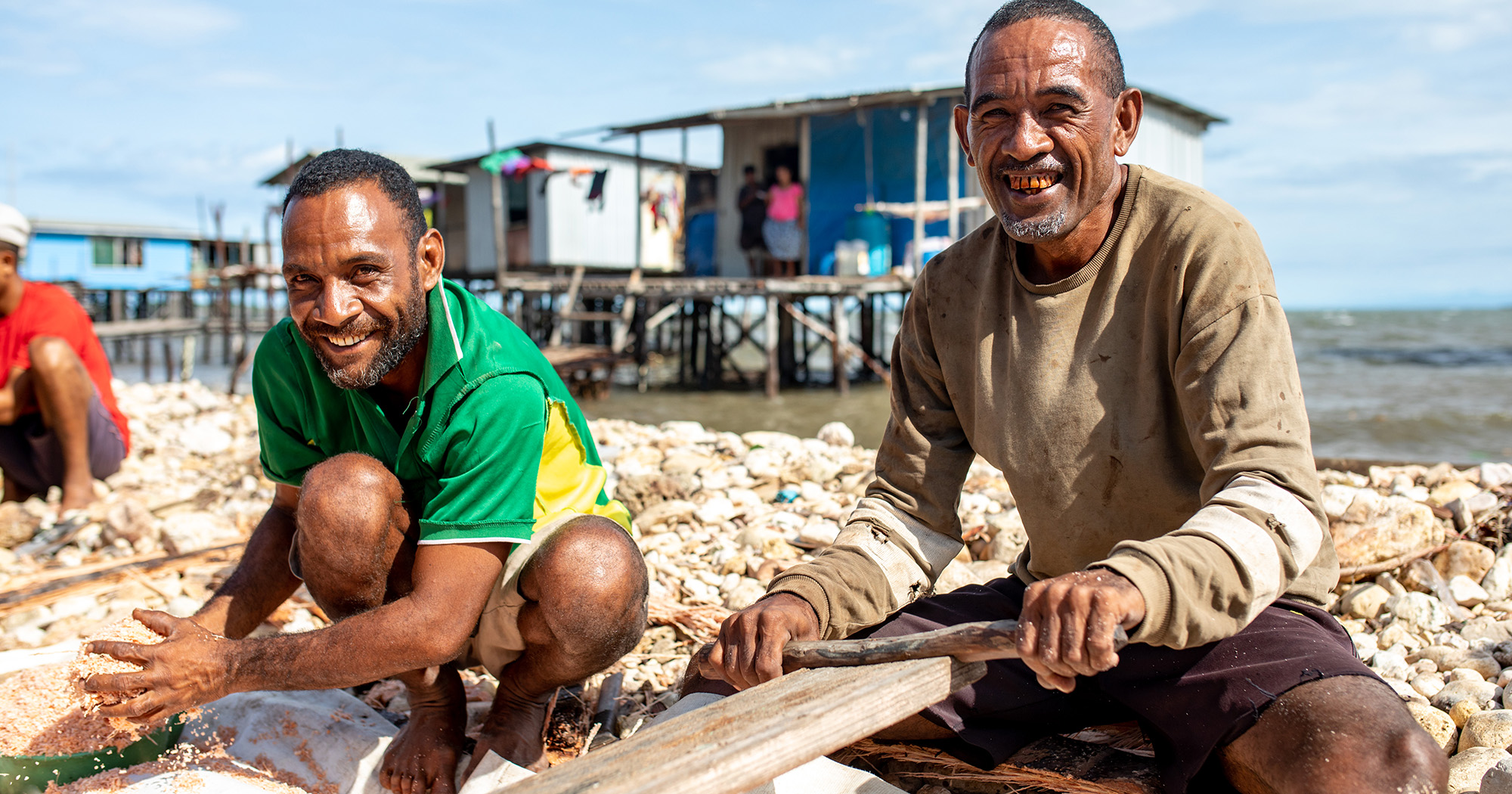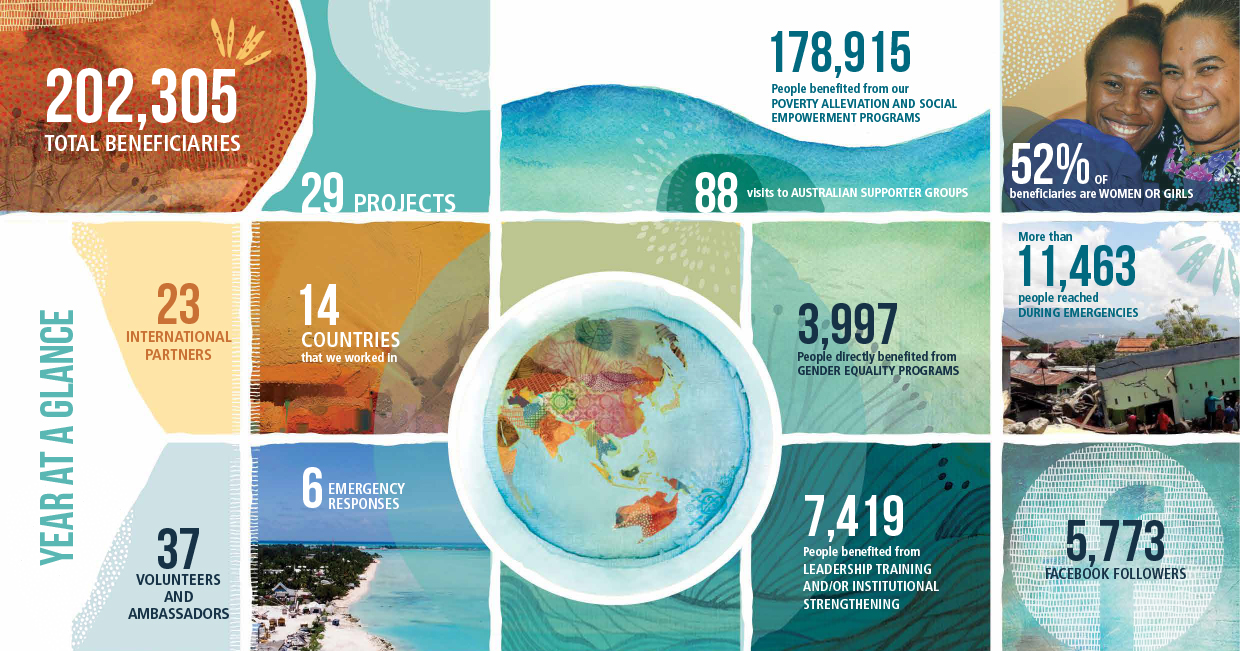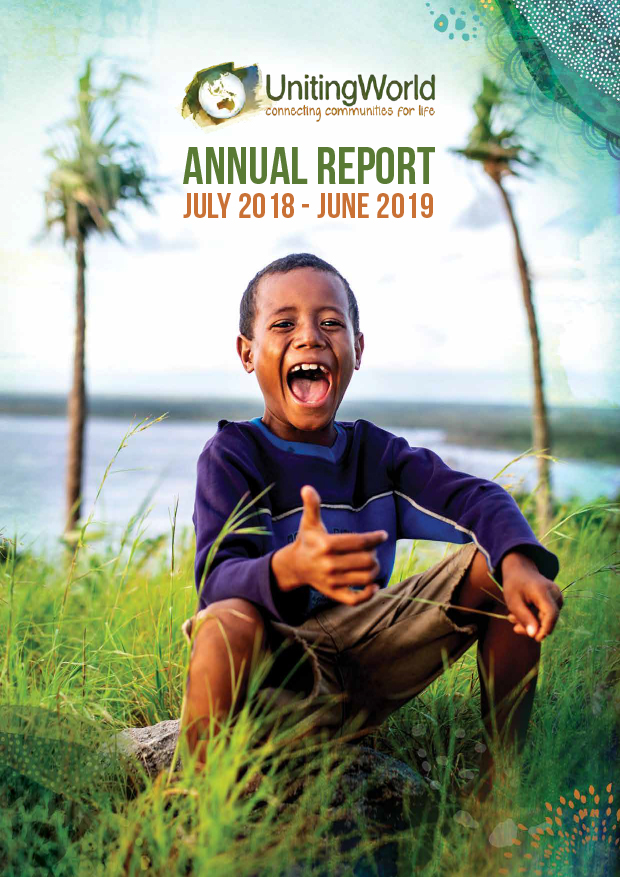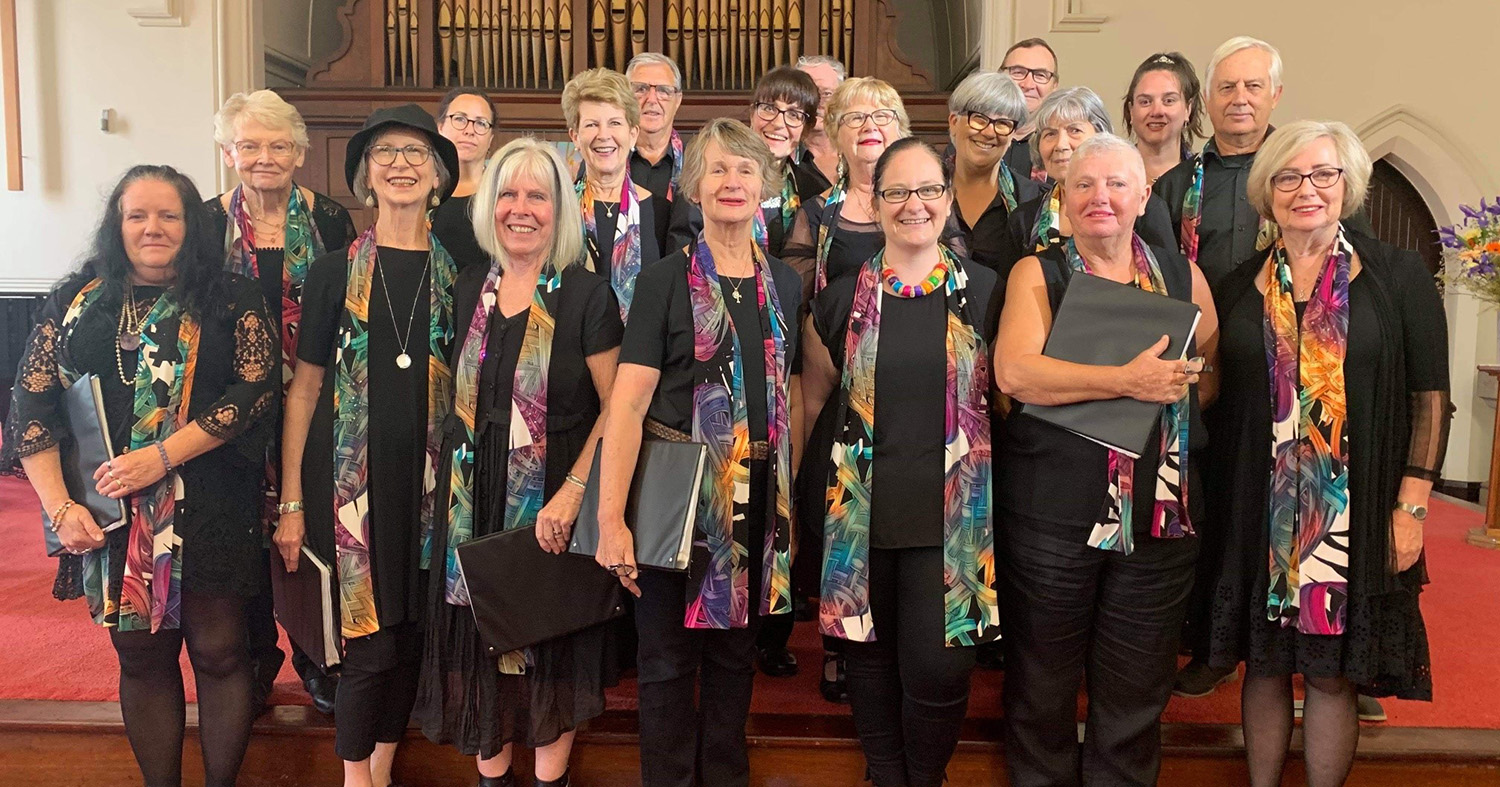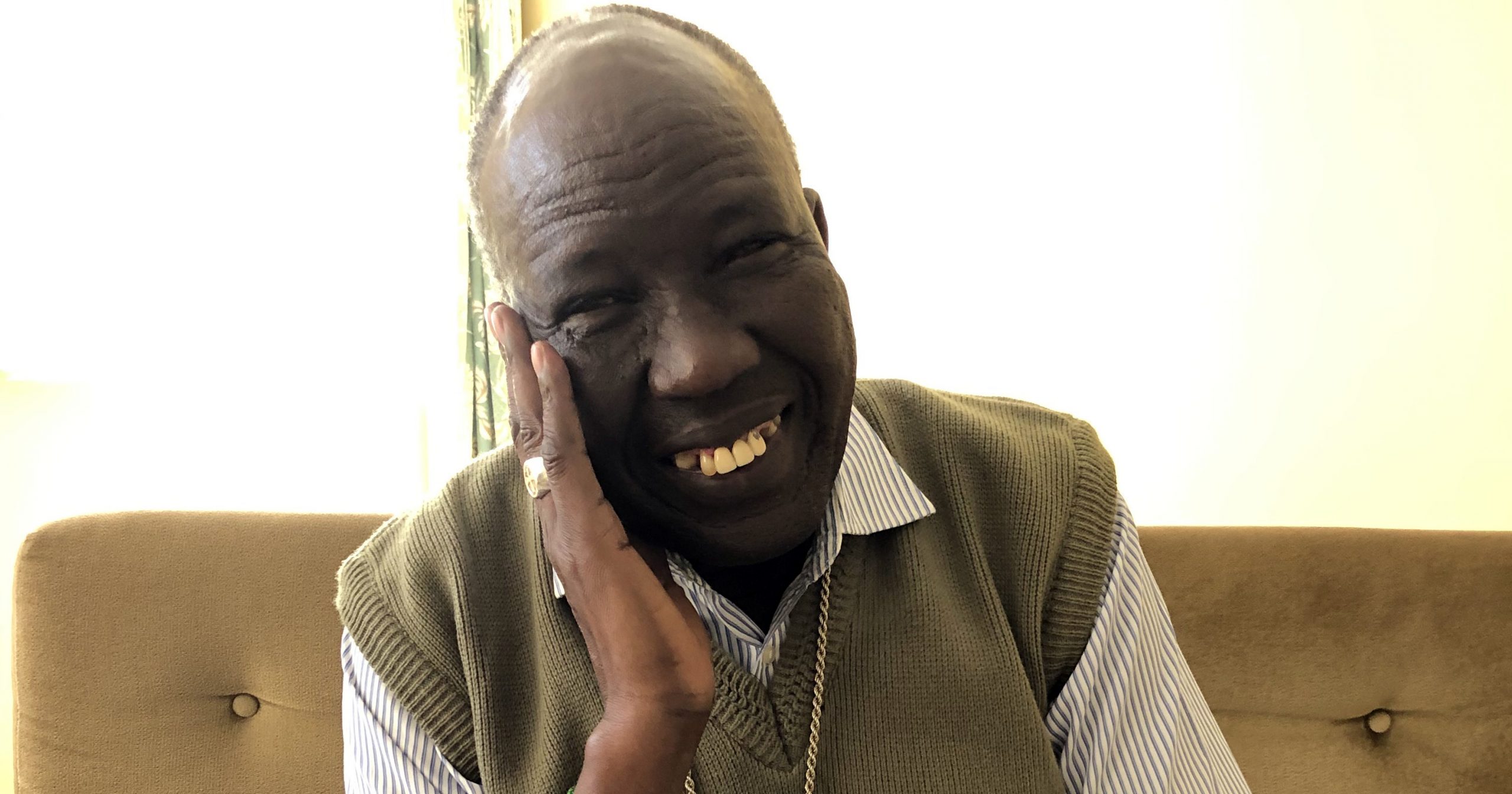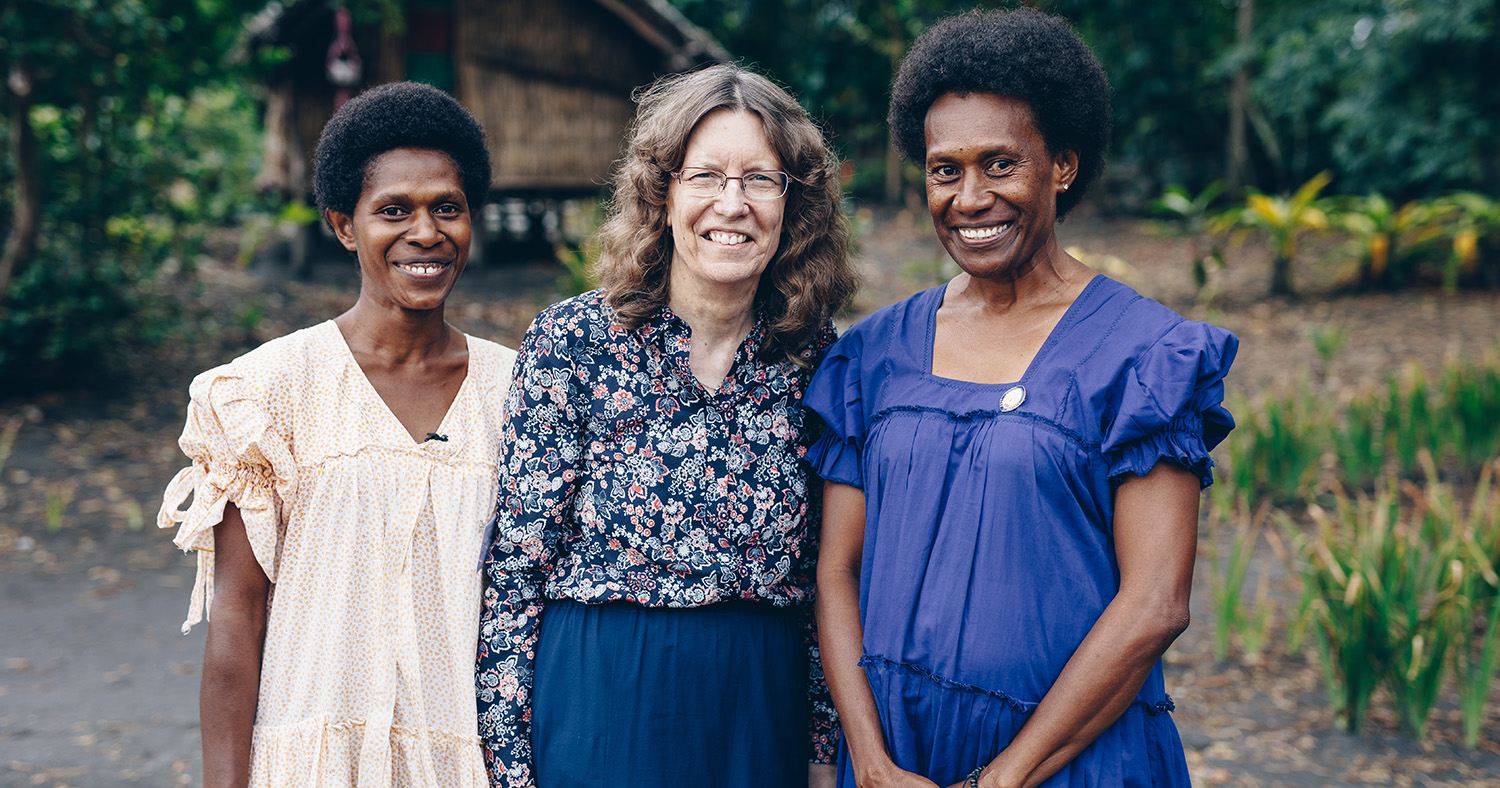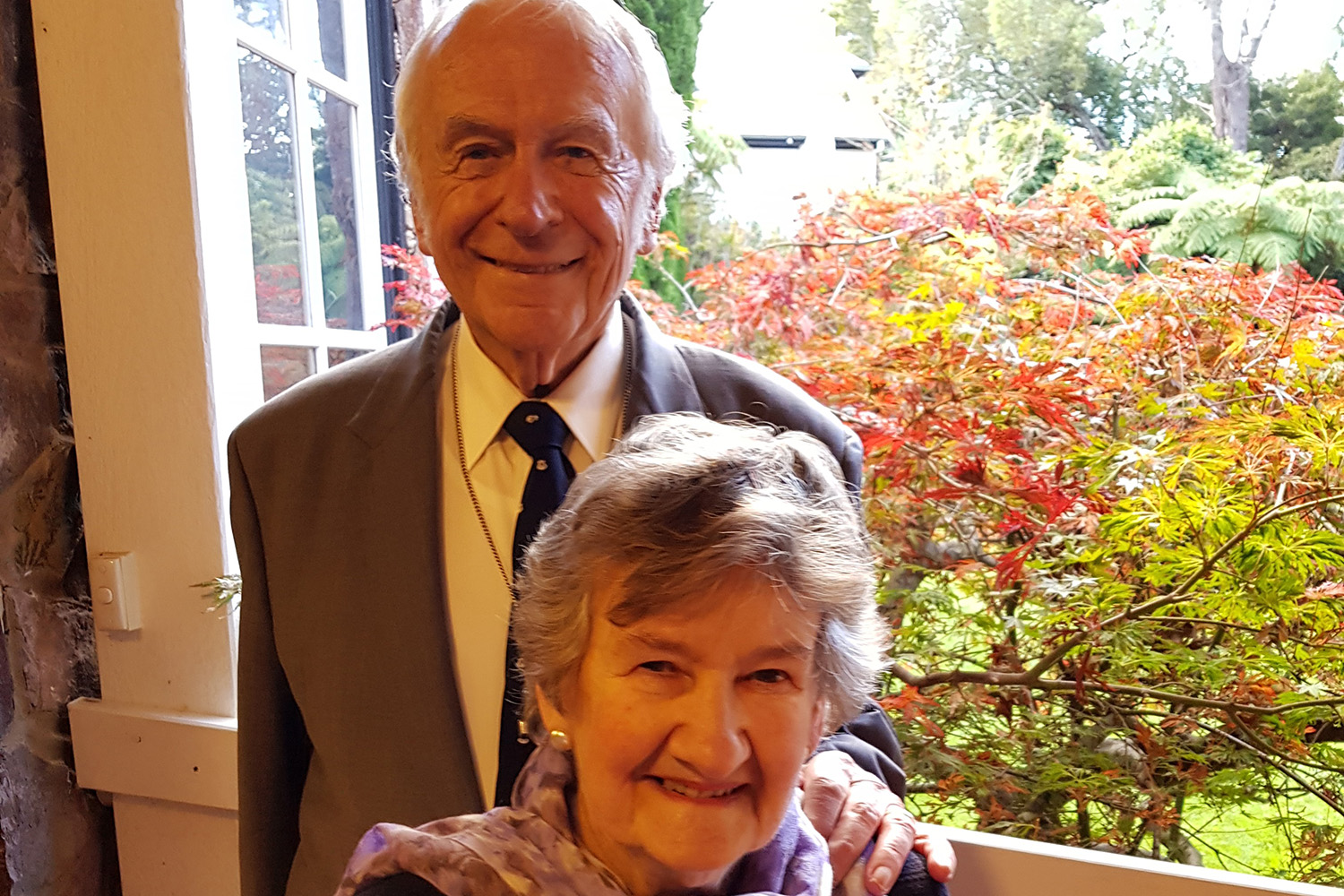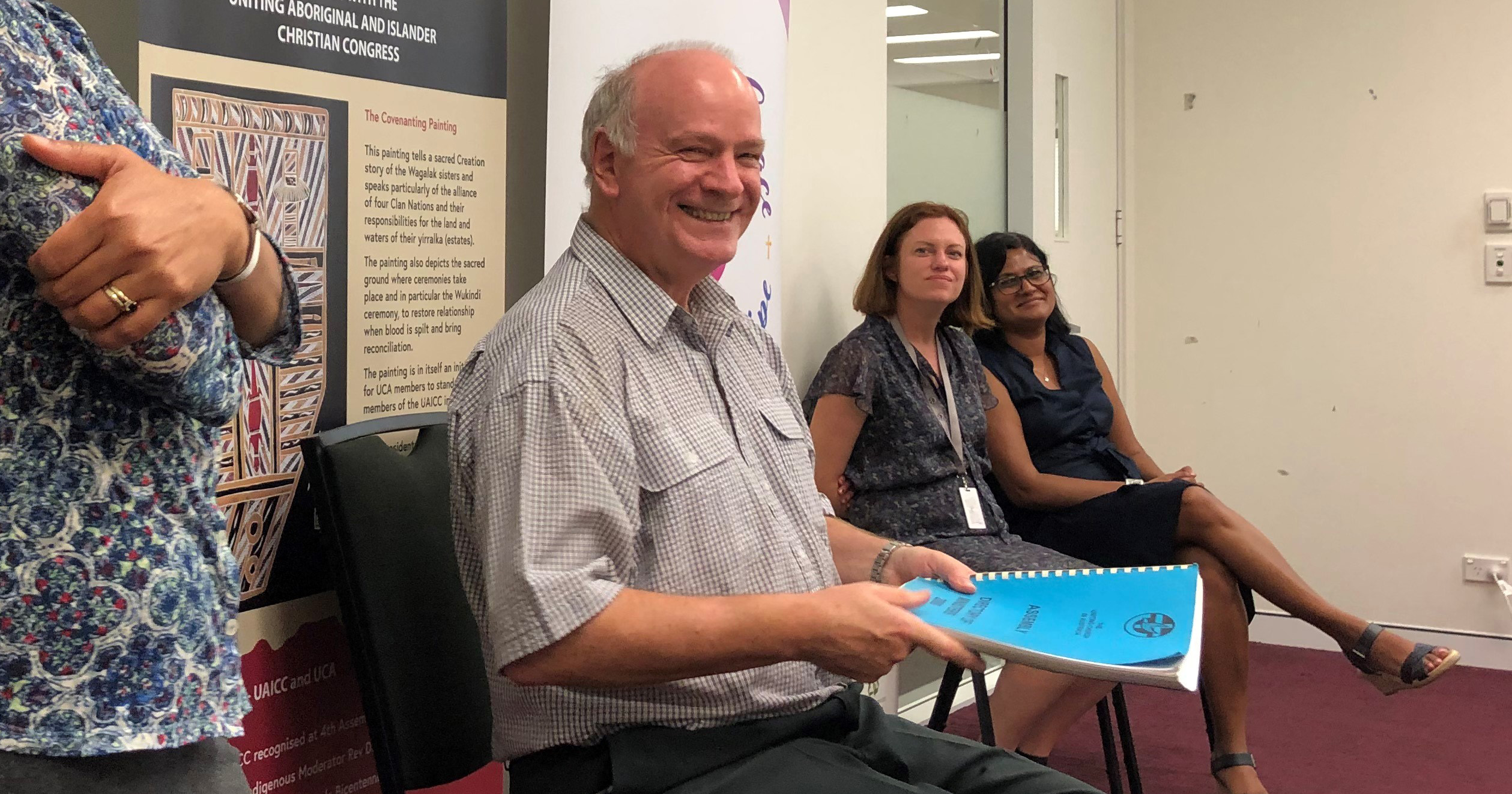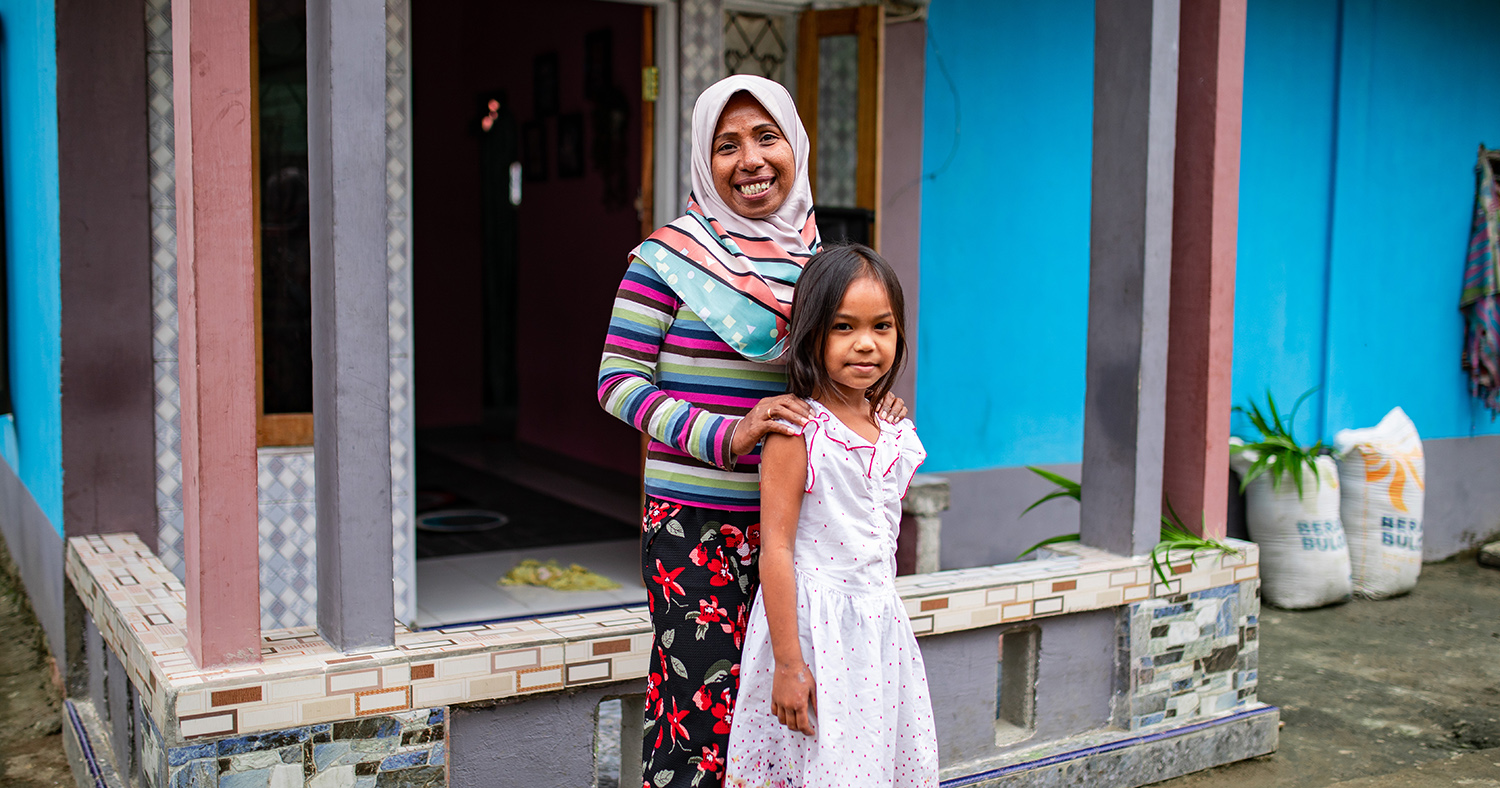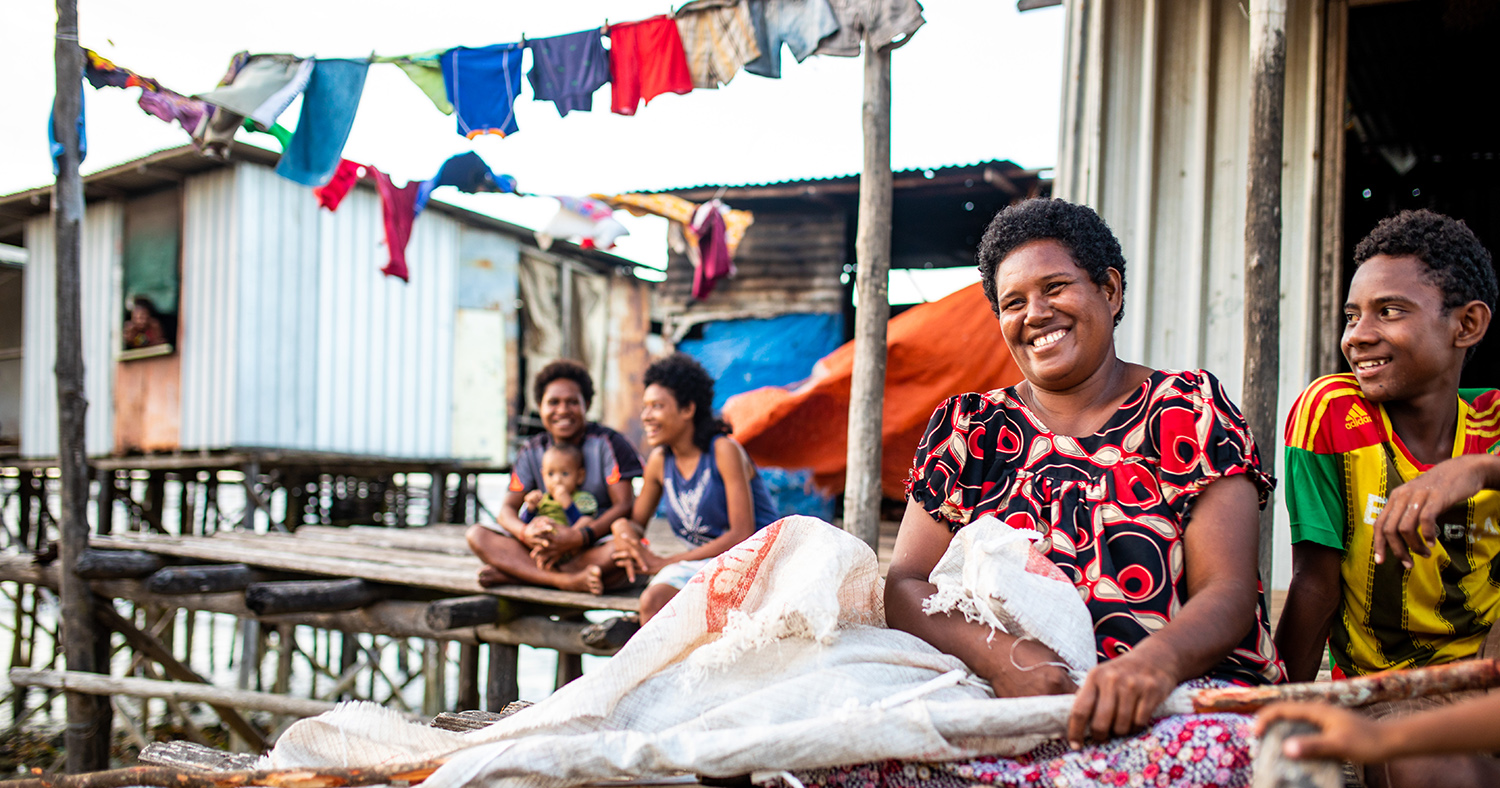Up close, you can see the brush marks in the walls of Attika’s house. The rendered concrete has been painted by hand – pink inside, bright blue outside.
All over Ambon, Indonesia, the houses are a defiant dazzle in a place where you might easily expect pain to have completely stripped the colour from life. It hasn’t.
Conflict between Muslims and Christians here in 1999 killed 5,000 in hand-to-hand fighting and left 70,000 people homeless. Attika, who fled her village during the conflict and lived for years in a refugee camp, could scarcely imagine ever speaking with a Christian again, let alone working beside women who have since become her closest friends. The transformation is the work of the Protestant Church of Maluku, who’ve been running projects in Ambon that bring Muslims and Christians together to beat poverty and build peace. Their story is one for the ages.
Attika’s smile is radiant as she shows us the home she built with $5.00 a week saved from a business built as part of a group of Christian and Muslim women run by UnitingWorld’s partner in Ambon, the Protestant Church of Maluku. Expressed differently but closely held, the women’s faith in God bound them together as they rebuilt homes, lives, each other’s churches and mosques.
Rev. Jeny Elna Malupane, who coordinates the project in Ambon, says that the work of peacebuilding is central to our identity as God’s children.
“I see the way life is changing for people in the community,” she says. “This is how I see God at work in humanity. It is incredible, actually. It is like nothing else, this grace of God bringing people together.”
A month after we return from Ambon, a series of devastating photographs arrive here in our office. They show Attika’s home completely destroyed by three earthquakes that hit the island in September; in one photo, Attika sits among blue and pink rubble, still selling her home-cooked snacks.
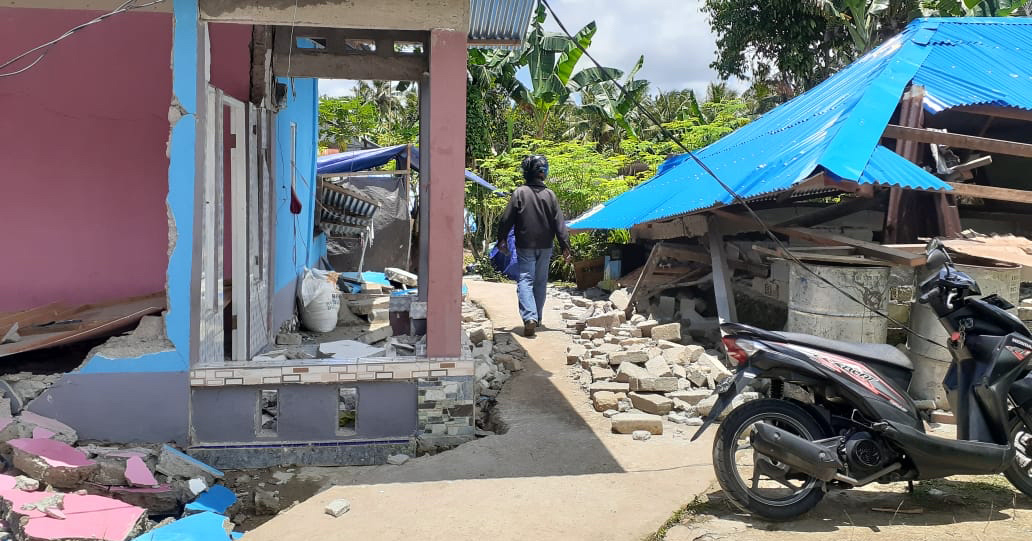
We gaze in silence at the two sets of images of Attika’s home, side by side, and I struggle with the idea that in both, God is present – in and through the relationships that have been built. Jeny’s team, through the Church’s Sagu Salempeng Foundation (SSF), is already on hand providing supplies to people living under tarps in the forest, too frightened to return to their homes. Jeny’s own family are among them.
“People are resilient,” Jeny says. “They dig deep. And they see God providing for them, even in this tragedy. The women’s groups have already been there for one another, sharing their food and resources: Christians, Muslims. They have become like family.”
And again, I’m reminded that in a world of pain and suffering, God’s intimate and powerful act was to come close as a child named Emmanuel: “God with us.” Born into the reality of our lives, sharing our existence, experiencing our hunger, sorrow and even our death. This is the God who is ever-present. This is the God who also, ultimately, overcomes.
God does not do this work alone. ‘God with us’ calls us alongside in partnership as we work toward the love that conquers death. For Attika, for Jeny, for every person digging deep to rebuild a life of dignity: please join us in giving the hope that holds us together this Christmas.
Everything in Common gifts change lives by ending poverty and bringing hope
They’re available at www.everythingincommon.com.au and you can send digital gift cards to loved ones right up until Christmas. Call us on 1800 998 122 to order gifts or donate this Christmas season.
